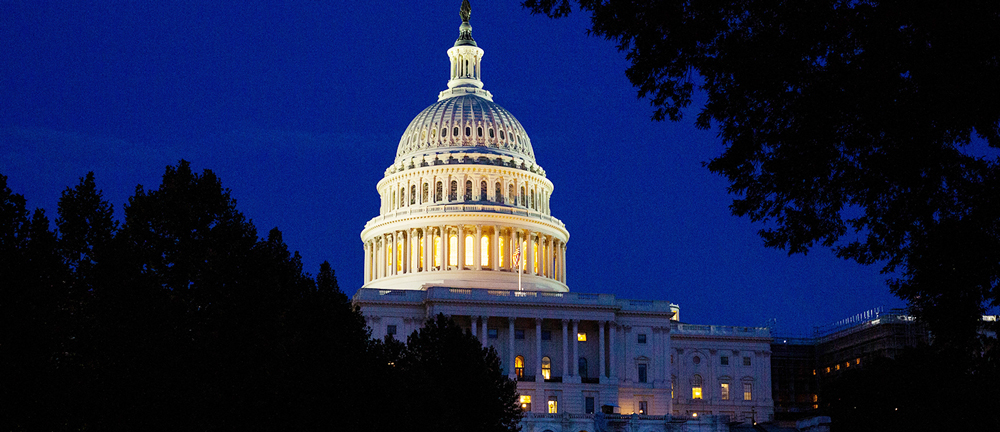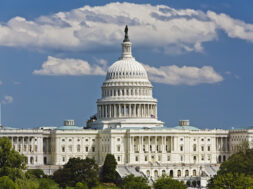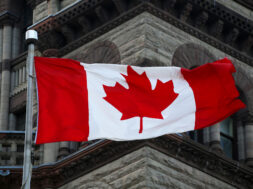Middle-Market Public Policy Roundup
Senate leaders propose legislation that would allow businesses to deduct expenses paid for PPP loans, other senators push for small business relief, and House lawmakers propose debt collection moratorium.

In this week’s roundup, Senate leaders are proposing legislation that would allow businesses to deduct expenses paid for with the Small Business Administration’s Paycheck Protection Program loans from future tax payments. Plus, minority leaders in the Senate are pushing the Treasury and SBA to prioritize small business relief. Meanwhile, in the House, lawmakers are proposing a temporary moratorium on debt collection.
Senate Leaders Push Treasury to Allow Small Businesses to Deduct PPP Expenses
While federal loans to help small businesses cover payroll during the coronavirus lockdown can be forgiven, companies may not be able to deduct expenses paid with the emergency funds, an issue that Senate leaders are trying to clarify.
Senate Finance Committee Chairman Chuck Grassley, R-Iowa, joined Sens. John Cornyn, R-Texas, Ron Wyden, D-Ore., Marco Rubio, R-Fla., and Tom Carper, D-Del., on Wednesday to introduce the Small Business Expense Protection Act, which would clarify the rules of the Small Business Administration’s Paycheck Protection Program so companies can deduct expenses paid with a forgiven PPP loan from their taxes.
“When we developed and passed the Paycheck Protection Program, our intent was clearly to make sure small businesses had the liquidity and the help they needed to get through these difficult times,” Grassley said in a statement. “Unfortunately, Treasury and the IRS interpreted the law in a way that’s preventing businesses from deducting expenses associated with PPP loans.”
Senators said the intent of the PPP was to maximize small businesses’ ability to maintain liquidity, retain their employees and recover from the pandemic as soon as possible. But last week, the IRS issued a notice suggesting that small businesses cannot deduct these business expenses.
“That’s just the opposite of what we intended and should be fixed,” the senators said.
Earlier this week, committee leaders in both the Senate and House came together to support the clarification.
On Tuesday, Grassley, Wyden and House Ways and Means Committee Chairman Richard Neal, D-Mass., submitted a letter to Treasury Secretary Steven Mnuchin asking him to change the interpretation of the stimulus bill that prevents businesses from deducting expenses paid for with PPP dollars.
“This interpretation means that whatever income a small business is able to produce will be taxed on a gross basis to the extent of the loan forgiveness, leaving substantially less after-tax capital for the swift economic recovery we hope is on the horizon,” the lawmakers wrote.
According to the SBA, more than 2 million loans amounting to more than $175 billion have been made to small businesses since the second round of PPP relief became available on April 27, surpassing the number of all loans made during the first round.
The average loan size in Round 2 was estimated at $79,000, and almost 500,000 of the loans were made by lenders with less than $1 billion in assets, along with nonbank lenders.
Since this program began, the SBA has processed more than 3.8 million loans totaling more than half a trillion dollars of economic support.
The importance of relief to small and midsize companies is being increasingly underscored as jobless numbers continue to rise in the U.S. amid shutdowns prompted by the coronavirus.
According to Labor Department figures released Thursday, 3.2 million more American workers filed for unemployment last week, bringing the total number of those seeking aid to more than 33 million.
Ranking Senate Banking Committee Member Calls for More, Smaller PPP Loans
Late last week, Sen. Sherrod Brown, D-Ohio, ranking member of the U.S. Senate Committee on Banking, Housing, and Urban Affairs, along with Sen. Brian Schatz, D-Hawaii, called on Treasury Secretary Steven Mnuchin and SBA Administrator Jovita Carranza to prioritize smaller banks and smaller loans in the Paycheck Protection Program.
“For small businesses and nonprofits, access to a PPP loan is a matter of survival, but many of them will be left with nothing because the SBA’s current process is not working,” the senators said in a letter sent to Mnuchin on April 28.
The senators also demanded answers on the “unfair and opaque” processing and distribution procedures, which they said have favored big banks and large loans that benefit well-funded and well-established businesses over smaller family-owned businesses.
“The problem is rooted in the SBA and Treasury’s approach to processing loan applications,” they said. “This approach, which purports to be ‘first-come, first-served,’ is not at all transparent and does a poor job of effectuating Congress’s intentions.”
Lawmakers Propose Moratorium on Debt Collection
Proposed legislation would suspend most debt collection for individuals and small businesses during the coronavirus shutdown, according to an updated plan released by leading members of the House Committee on Financial Services on Tuesday.
The proposed law, the Financial Protections Assistance for America’s Consumers, States, Businesses, and Vulnerable Populations Act, would prohibit debt collection, repossession and garnishment of wages during the pandemic.
Portions of the legislation were written by Rep. Al Lawson, D-Fla., and would pause debt collection activity for 120 days to allow families and businesses to get back on their feet.
“This would give working Americans, small business and non-profits another tool in the recovery process,” Lawson said in a statement.
The legislation also includes a 28-point plan originally drafted in March by Financial Services Chairwoman Maxine Waters, D-Calif., and other leading committee members that would suspend most forms of credit payments, including mortgages, car notes, student loans, credit cards and small business loans.
The legislative package also proposes a wide range of support during and after the coronavirus pandemic, including recurring stimulus payments to families, community development grants and relief for local governments.
“The circumstances we are facing are unprecedented and will require creative approaches,” Waters said in a statement unveiling the plan in March.

Benjamin Glick is ACG Global’s marketing and communications associate.


